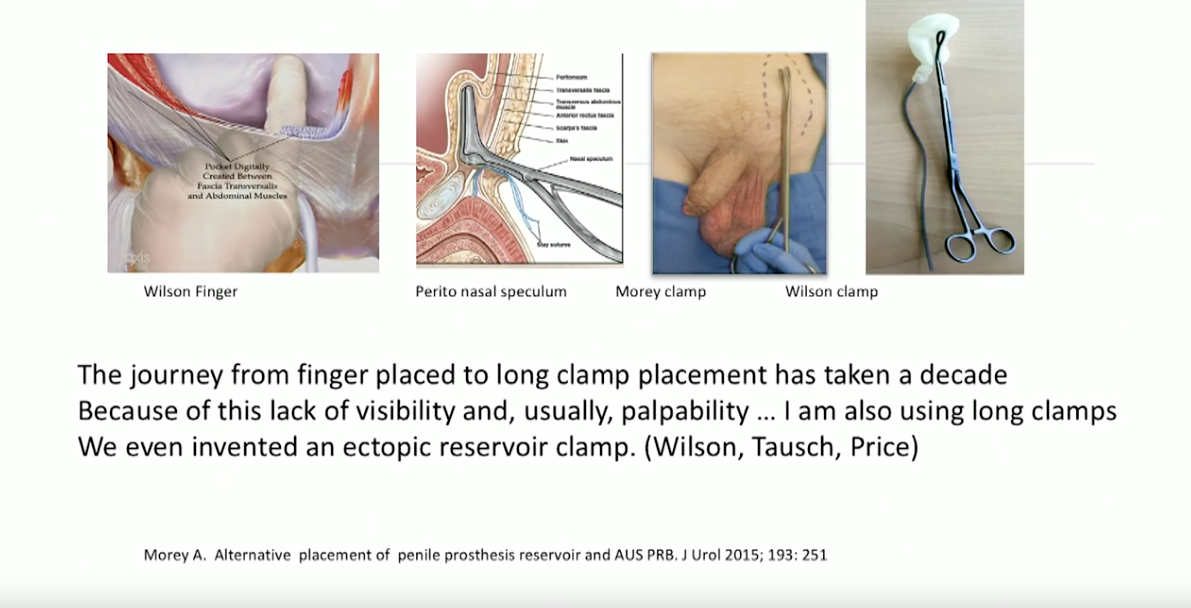Steven K. Wilson, MD, FACS, FRCS, presented “5 Surgical Things I Wish I Had Learned Earlier in My Career” during the 24th Annual Innovations in Urologic Practice on September 14, 2019 in Santa Fe, New Mexico.
How to cite: Wilson, Steven K. “5 Surgical Things I Wish I Had Learned Earlier in My Career” September 14, 2019. Accessed Apr 2024. https://grandroundsinurology.com/5-surgical-things-i-wish-i-had-learned-earlier-in-my-career/
5 Surgical Things I Wish I Had Learned Earlier in My Career
– Summary:
Steven K. Wilson, MD, FACS, FRCS, discusses five major lessons he has learned, and would have liked to have learned earlier, in his decades working as a urologic surgeon. He notes the progress that has been made in surgical techniques and emphasizes the importance of careful patient selection.
Abstract:
This presentation outlines the changes in the field of urologic surgery Dr. Wilson has both witnessed and enacted over his tenure, which began in the early 1970s, by focusing on five lessons related to inflatable penile prosthesis (IPP) that he wishes he had learned earlier in his career.
The first of these lessons is that the technique of initial straightening is better than modeling the penis over an IPP when managing Peyronie’s disease. Dr. Wilson presented modeling to the American Urological Association (AUA) in 1994, and by 2001, modeling had become the gold standard. Unfortunately, modeling does not result in a straight penis in flaccidity, and this method carries a chance of urethral injury. Numerous researchers have since reported on methods of penile plication and initial straightening.
The dual implant of an artificial urinary sphincter and IPP via one incision is another innovation of Dr. Wilson’s that he now rejects. He has found that often, when complications arise in one component of a dual implant, both implants must be removed. He now prefers a staged double implant.
However, Dr. Wilson believes his discovery of ectopic reservoir placement. Not only does this avoid the significant risks associated with retroperitoneal reservoir placement, but surgeons who take on a low-volume of penile cases can be more confident utilizing this safer placement method.
Dr. Wilson’s last two lessons relate to general experiences with patience rather than surgical technique. With the exception of certain cases, such as device infections and urine, pus, or blood drainage from open incisions, there is no need to rush a revision to surgery. Waiting three months allows time for a capsule to form and for patients to develop tolerance for imperfect results. Finally, it is essential to counsel patients and ensure they do not expect perfection in the first place. Along with this, it is important to practice careful patient selection when offering IPP.
About the 24th Annual Innovations in Urologic Practice
Innovations in Urologic Practice (Innovations) is an annual, multi-day, CME-accredited conference devoted to innovative diagnostic and treatment strategies for and controversies related to some of the most common urologic problems in the current era. The topics covered include oncological management of the bladder, kidney, and prostate. The conference also emphasizes general urology topics in pelvic reconstruction and trauma, men’s health, and infections in the urology patient. Dr. Wilson presented this lecture during the 24th Innovations in 2019. Please visit this page in order to register for future Innovations meetings.

